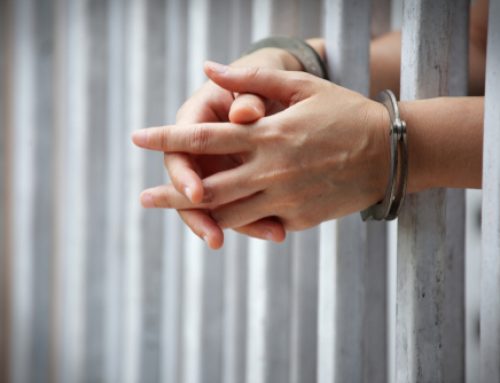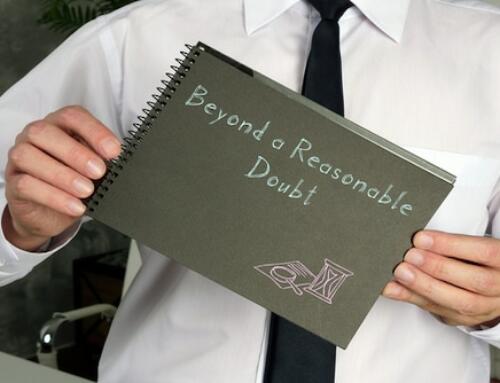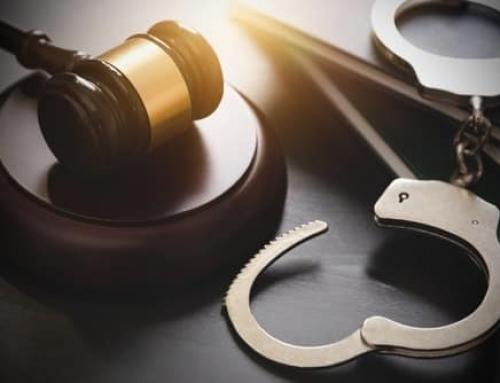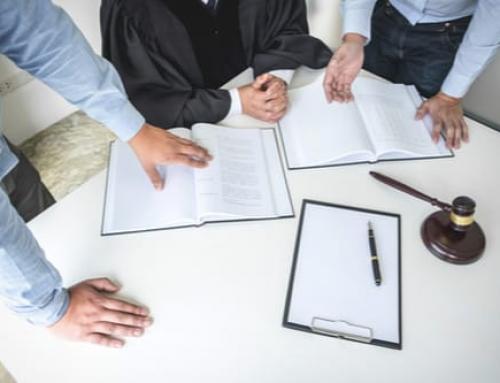Criminal Justice in the Age of COVID-19
As the days pass, the news becomes more ominous about the coronavirus pandemic spreading across the globe. Schools, restaurants, movie theaters, bars, and retail stores are closed. Walking around Philadelphia feels like you are in a ghost town. Few people are on the streets and nothing is open. First, we could not gather in groups over 50. Then it was 10. Now you must be home unless you are leaving to buy groceries, pickup medication, or other life-sustaining activities.
All courts in Philadelphia, Montgomery, Delaware, Bucks, and Chester County have been ordered closed from March 19, 2020, through April 3, 2020. And, it’s likely that they will remain closed beyond the beginning of April 2020. However, there are necessary functions of the criminal justice system that must continue. If someone is arrested they must still go through preliminary arraignment where bail is set. And, if you cannot pay bail, you are sent to county prison where you obviously cannot practice social distancing.
Pre-Trial Release during Coronavirus Pandemic
If you were arrested after March 19, 2020, when the courts were ordered closed and you cannot pay your bail, then you are now stuck in prison with a presumption of innocence and no preliminary hearing or trial date in sight. Unlike before March, your criminal defense lawyer cannot simply file a bail motion, obtain a hearing date, and argue these motions in open court. A prison creates a unique set of difficulties when there is a health crisis involving a very contagious airborne virus.
Although the courts are not open, a criminal defense attorney can still file an emergency petition to reduce bail or to have an inmate released pre-trial. While there will be no formal hearing, there are judges that are reviewing these motions to see if they have merit. A lawyer can request that a judge hear these emergency bail motions by phone. Criminal defense lawyers can also reach out to the District Attorney’s Office to see if an agreement can be reached on bail and then a judge can sign an order reducing bail.
Additionally, preliminary arraignments are still handled in the basement of the Criminal Justice Center in Philadelphia and an attorney can be hired to be present at the hearing to argue the lowest possible bail to be set by bail commissioners. If bail is paid shortly after arraignment, a loved one will be released from the district rather than sent to CFCF. In the surrounding counties, these preliminary arraignments can be held via video before a magistrate judge.
The one difficulty with preliminary arraignments is that their timing can be hard to predict as they run 24/7 and can be in the middle of the night. However, even in those circumstances, an agreement on bail release may be worked out with a representative from the District Attorney’s Office before your loved one’s arraignment is held.
Detainer Petitions during Coronavirus Pandemic
Individuals currently on probation are not reporting to probation because the offices are closed. However, many inmates are in custody because while on probation, they either picked up a new case or otherwise violated probation. These technical violations could include testing positive for drugs, absconding from probation, violating a stay-away order, failing to complete community service, or paying restitution.
Under normal circumstances, you likely will remain in custody until the outcome of your case as your back judge or probation officer will lodge a detainer. However, when there is no way of knowing when you will have your day in court, it is unfair to keep someone in jail indefinitely. A criminal defense lawyer can still file a petition to lift a detainer. Judges are reviewing these petitions and seeking the District Attorney’s Office’s position to see if an agreement for the release can be reached.
If you are in custody for a technical violation, courts should be even more lenient about the release as the reason for incarceration is not a new criminal case. If your only violations are technical, you may stand an even better chance of getting your detainer lifted.
Health Concerns in Prisons During Coronavirus
A prison creates a unique set of health issues when there is a global pandemic. Governors across the county have ordered that people remain in their homes. Medical experts have called for social distancing to stop the spread of the virus. They do not want people gathering in large groups. All major sporting events have been canceled and the Olympics have been postponed. It is sensible to keep people apart to stem the spread of this virus. However, this is not possible in a prison for the following reasons:
- Inmates are housed in close proximity to others and unable to create any distance. There can be three inmates living in a small cell together.
- Prisoners must spend significant time in communal areas, including eating areas, bathrooms, recreation rooms, and their cells.
- They are forced to live within six feet of each other and therefore are in obvious violation of health expert’s recommendations.
- They must physically touch each other, corrections officers, social workers, and staff and there is no evidence that any are being tested for COVID-19. Even though inmates have been quarantined from the outside world, those who work in the prison go home, interact with others and return to the prison the following day.
- Inmates are living in already unsanitary conditions with limited access to the proper soap, hot water, paper towels, and hand sanitizer.
- Prisoners do not have the same access to quality healthcare should they become sick and therefore are already a more vulnerable population.
The above combination is a recipe for disaster. While prison doors cannot simply be opened, we have to be sensible about who must remain incarcerated and release others. Once one prisoner contracts the virus, it will spread through the prison rapidly. These inmates will now have to go to local hospitals. There they will put doctors, nurses, and medical staff at greater risk. If they return home after testing positive, they will put their family at risk of infection. We must stop this before it adds to the global pandemic.
Criminal Lawyers Thoughts on Coronavirus
There are no clear answers as this is all uncharted waters. In my 18 years as a lawyer in Philadelphia, the courts have never been closed for more than two days for a snowstorm. The idea that the courts could be closed for a month is novel to everyone involved. Therefore, all sides must weigh the health and public safety concerns of a virus outbreak in the prisons against the release of inmates who may have criminal records.
The longer this pandemic stretches, the more likely there will be positive tests in local prisons. Once someone in prison has the coronavirus, it will spread like wildfire as inmates are living with no personal space in unsanitary conditions. Some may try to argue that inmates are by definition self-quarantined as they have little contact with the outside world. But, even with personal visits being canceled this simply is not accurate.
Corrections officers, social workers, nurses, new inmates, and other prison staff are coming and going throughout the day. All of these people have contact with the outside world. It just takes one of them to be infected and come to work for the coronavirus to spread through a prison. And when that happens, the county and state are going to have a major public health crisis on their hands.
In an effort to avoid this crisis, inmates who are most vulnerable to the virus should be released before this pandemic sweeps through the prison. This includes elderly inmates whose lives may be at risk if they are infected. Inmates with significant medical conditions should also be considered for release as they are already compromised. And, let’s be honest, a released inmate is much less of a threat to the community if they are not leaving their home due to ordered self-quarantine. They are also not a flight risk as airports are virtually shut down and nobody is traveling.
If your loved one was recently arrested or is currently incarcerated in county prison and you think they may be eligible for release, please contact criminal defense attorney Brian Fishman for a free consultation.






